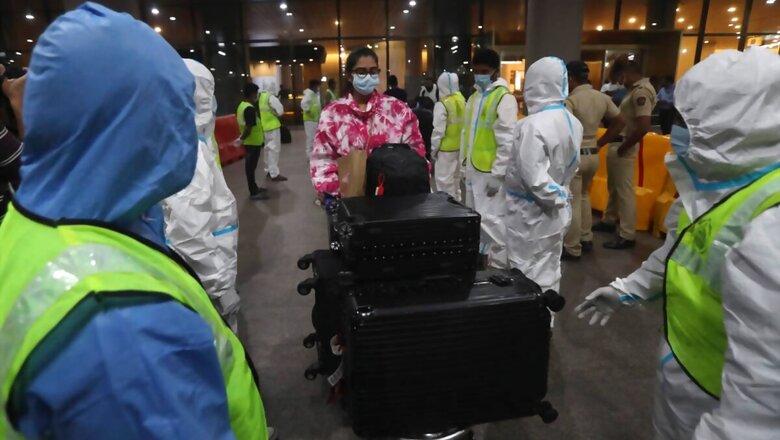
views
The Union government is going to ramp up surveillance of the mutations and different strains of the SARS-CoV-2 virus in light of the outbreak of a new variant of the virus in the United Kingdom. The government has proposed a ‘Genomic Surveillance Consortium’ in a bid improve its understanding of how the virus spreads and has evolved.
The consortium will see collaboration between autonomous institutes of the Ministry of Health and Ministry of Science and Technology to ramp up genome sequencing of novel Coronavirus samples. The government’s proposed plan comes a week after it rolled out a fresh protocol to screen and test international travellers who either returned from the United Kingdom or transited through UK.
The consortium will expand the ongoing efforts of genome sequencing of Coronavirus samples that are being carried out by Indian Institute of Genomics and Integrative Biology (IGIB), Delhi; National Institute of Biomedical Genomics (NIBMG), Kalyani, West Bengal and Centre for Cellular and Molecular Biology, Hyderabad.
Since March, IGIB, CCMB, NIBMG and National Institute of Virology, Pune, have sequenced about 4,500 positive samples of Coronavirus. Earlier in August, a NIBMG coordinated effort saw sequencing of 1,000 genomes to identify strains and their lineages. It was found that that the A2a strain brought in by travellers coming back from Europe was highly prevalent in the months of May to July.
Authorities are currently studying whether the new UK variant is prevalent in returnees and whether it has had a major impact in India. “The expanded surveillance and study of mutations can be seen together with epidemiological data of Coronavirus infections to monitor co-relations, patterns in transmission and local outbreaks,” said Shekhar Mande, Director-General, Council of Scientific and Industrial Research (CSIR).
The government’s official document on the surveillance consortium said, “Data from genome sequencing laboratories will be analysed as per the field data trends to study the linkages (if any) between the genomic variants and epidemiological trends. This will help to understand super spreader evens, outbreaks and strengthen public health interventions across the country to help in breaking the chains of transmission.”
Under the expanded surveillance, the government will collect samples from all UK return travellers who tested positive for Coronavirus, all positive samples from people who are participating in vaccine trials or have been vaccinated, those with re-infections, those who returned to India from November 23 and tested positive and 5% random sampling of those who tested positive since November 23.
Mande added that the D614G strain of the virus has been highly prevalent across the world including India. A recent study on this strain, published in Nature journal, found that the mutated strain increased viral load in the upper respiratory tract thus increasing transmission. However, it was also found that the strain was unlikely to reduce the ability of vaccines to protect against Covid-19 disease.
Read all the Latest News, Breaking News and Coronavirus News here




















Comments
0 comment